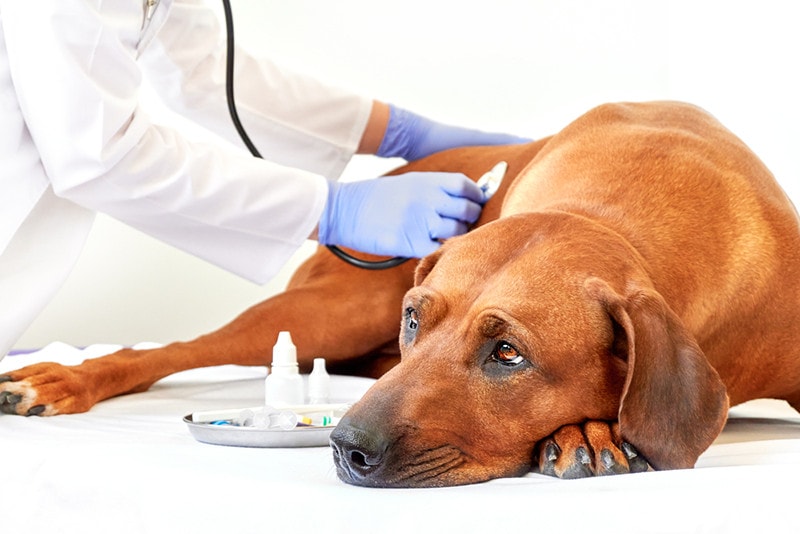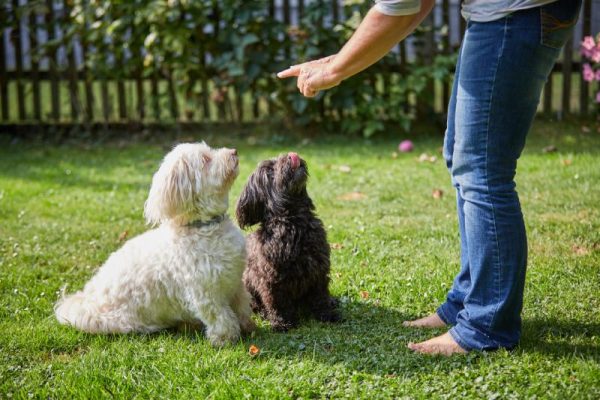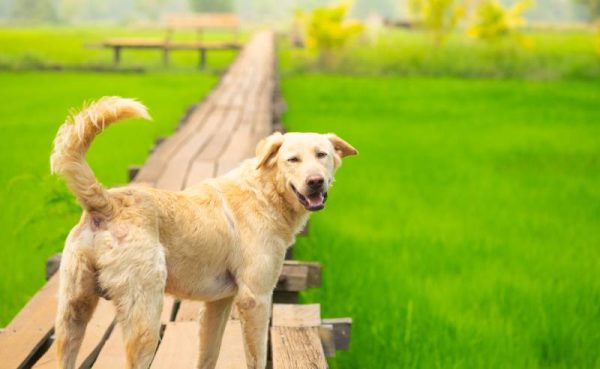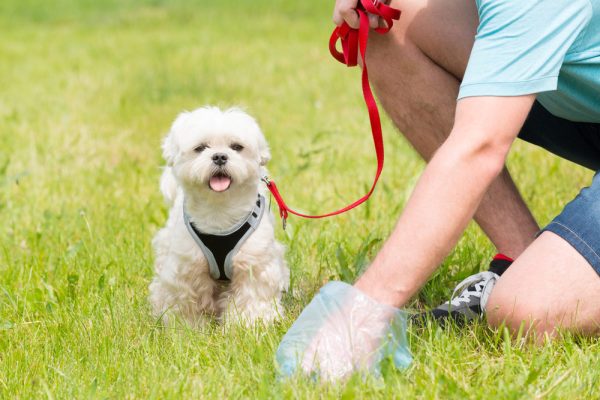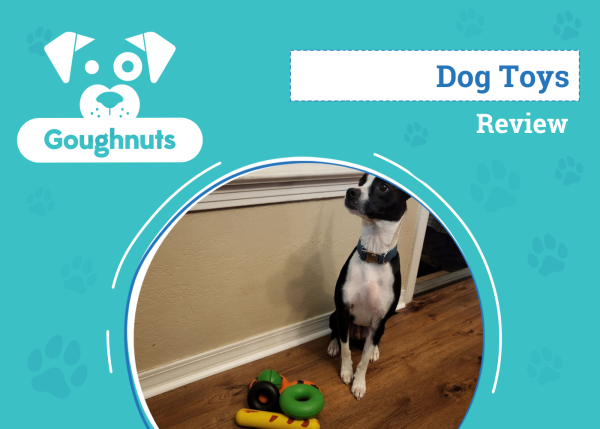In this article
View 6 More +Hookworms are, unfortunately, a common parasite found in dogs. Hookworms include:
- Ancylostoma caninum
- Ancylostoma braziliense
- Uncinaria stenocephala
They dwell in the intestines of dogs, and they have gained their name from their characteristic hook-like mouth parts. They use these mouthparts to firmly attach themselves to the lining of a dog’s intestines.
Hookworms are relatively small in size; they can only just be seen by the naked eye. They are capable of drawing away large amounts of blood from the blood vessels in the intestinal wall. If there is a large enough infection, hookworms can cause an inflammatory reaction and anemia. Any age and breed of dog can be affected, but puppies are more at risk than adult dogs.

What Is a Hookworm Infection in Dogs?
Hookworm is the common nickname for a type of parasite that dwells in the small intestine of dogs. Hookworms get their name from their appearance—they have a bent head and sharp teeth which enables them to hook onto the intestinal wall. The worms are able to anchor themselves to the intestinal wall lining where they feed on the tissue fluids and blood released. They inject an anticoagulant that prevents the blood from clotting.
This causes the continuation of bleeding long after the worm has detached. They cause a local inflammatory reaction where they latch onto the intestinal lining and due to the fact that they draw away such large quantities of blood, they can cause severe anemia.
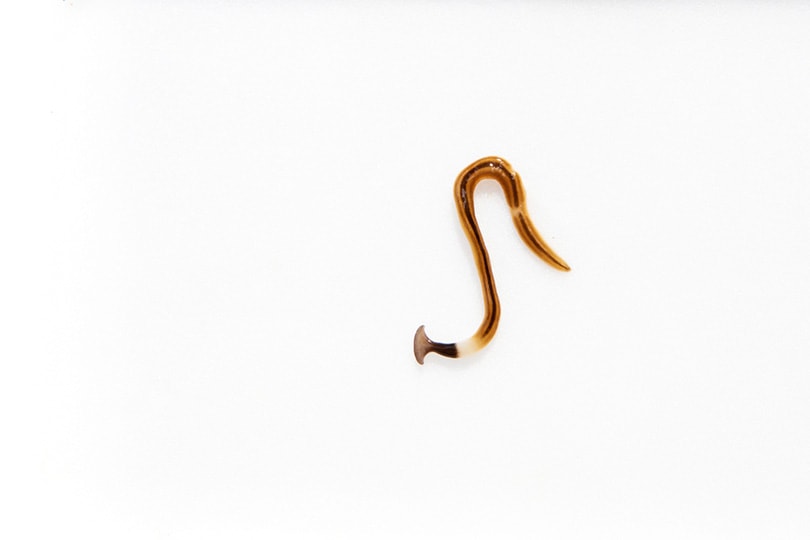
What Are the Signs of Hookworms in Dogs?
The clinical signs of hookworm infestation are caused by the latching of the hookworms to the intestinal wall and also the anemia brought about by the blood loss.
- Weight loss
- Blood in feces
- Dark tar-like feces
- Diarrhea
- Vomiting
- Lethargy
- Reduced appetite
- Dry, dull coat
- Pale gums
- Weakness
- Collapse
- Failure to thrive in puppies
- Cough
The clinical signs seen with hookworms vary depending on the dog’s age and general health status. Younger puppies or dogs that are immunosuppressed are generally affected worse and have more severe clinical signs.
When hookworms detach from the spot they are feeding on and reattach elsewhere, they leave a bleeding wound that seeps blood into the lumen of the small intestine. This blood mixes with the fecal matter produced further down the gastrointestinal tract and produces characteristic dark tar-like feces seen often with hookworm infection. Some dogs experience skin irritation and itchiness from hookworm larvae burrowing inside the skin and migrating along as this is how they enter the dog.
Is your dog presenting any of these signs? Talk with one of our experts here:
If you need to speak with a vet but can't get to one, head over to PangoVet. It's our online service where you can talk to a vet online and get the advice you need for your dog — all at an affordable price!

What Are the Causes of Hookworm Infection in Dogs?
The cause of infection in dogs is hookworm larvae burrowing into the dog’s skin, usually through their pads, as they walk on an area where the larvae have been deposited. The female hookworm releases eggs which are shed in the dog’s feces. When the feces are passed by the dog, the eggs hatch in the soil/on the ground, they change through several life stages and then are able to infect new dogs.
The larvae penetrate the feet of dogs usually and they travel to their desired location by migration through the tissues. They make their way to the lungs, and here they are coughed up and swallowed by the dog. They then reside in the small intestine and restart the life cycle by feeding, mating, and reproducing. Hookworms can also be eaten by ingestion of soil that’s been contaminated, other animal’s feces, or by eating prey animals that have been infected already.
Hookworms can become encysted when traveling through the body. This is where they adopt a dormant stage and don’t take any action, remaining inactive in the body. They will eventually wake up again and restart the life cycle. This phenomenon occurs when a dog is pregnant. Worms migrate to the dog’s mammary glands and get swallowed by the puppies when they start feeding. Hookworms are also capable of passing into puppies through the mother’s placenta.
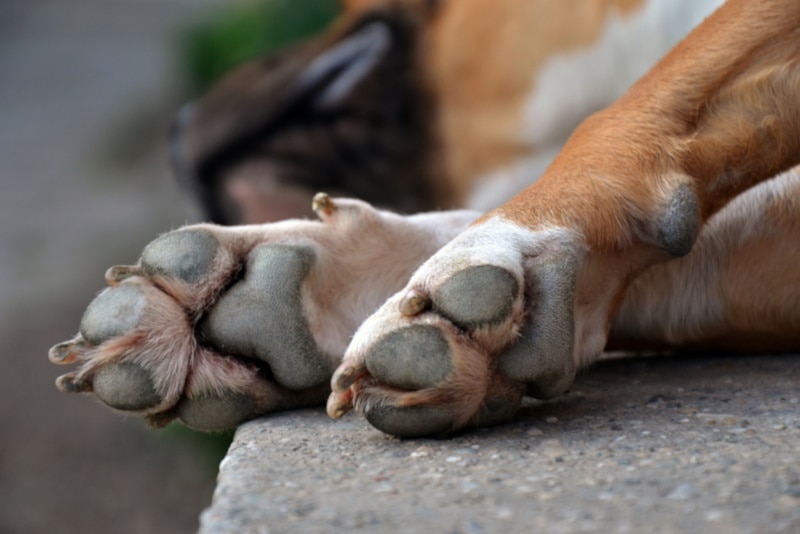
Diagnosis of Hookworm Infection in Dogs
Vets will be able to diagnose a Hookworm infection based on clinical signs reported by the owner and by examining the dog’s feces. A fecal examination is done by a process called a fecal flotation test. A fecal sample is obtained and mixed with a unique liquid that makes the parasite eggs float to the surface. This allows for the eggs to be collected from the surface of the liquid using a glass microscope slide. The slide is then examined under the microscope and the number and type of eggs present are observed. The number of eggs gives an indication of how severe the infection is.
Hookworm eggs have a characteristic oval shape that can be easily identified.
It is important to note that some dogs can have a hookworm infestation, but show no clinical signs, so there would be no suspicion of an infection. It is recommended to have your dog tested regularly to screen for hookworm infection, especially in areas where they are common.
How Do I Care for a Dog with Hookworm Infection?
There are several different drugs available on the market for the treatment of hookworms. The type of drug used is categorized as anthelmintics.
- Fenbendazole
- Pyrantel
- Moxidectin
- Milbemycin
Your vet will be able to discuss which one to use and the appropriate dosage. These are usually administered via the oral route. These drugs only kill adult hookworms, so it is important that dogs receive a second dose in 2–3 weeks to ensure any larvae that have turned into adult hookworms are killed too so the infection doesn’t become re-established.
- Intravenous fluid therapy
- Feeding tube
- Additional medication such as antibiotics
- Blood transfusion
- Dietary changes
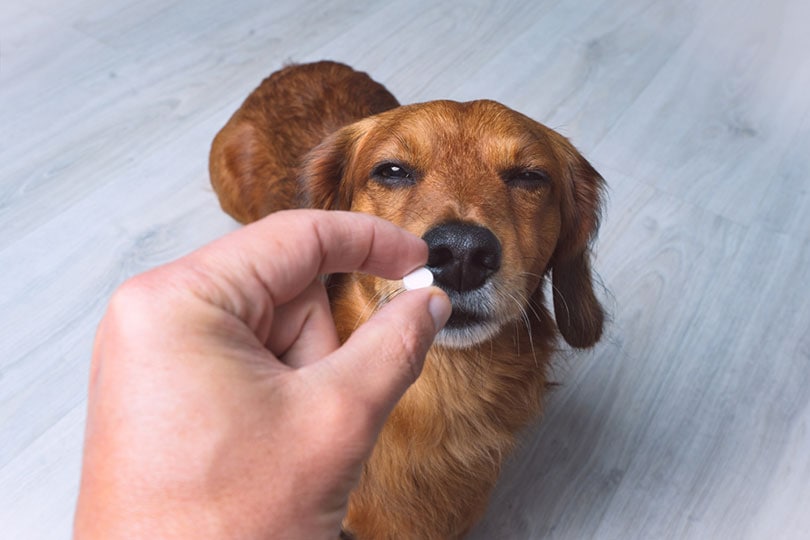
Zoonotic Risk of Hookworms
Hookworms can be passed on to other animals and humans. This means they are classed as zoonotic. If your vet has confirmed a hookworm infestation, you and everyone in your household must take all the necessary precautions to prevent further infection.
- Always wear gloves when handling your dog’s feces.
- Always pick up and dispose of your dog’s feces as soon as they have passed any.
- Clean up areas when your dog has passed feces
- Wash hands frequently and do not let your dog lick your face
- Don’t let your dog sleep on your bed
- Wear shoes and don’t sit with bare skin on soil or sand.
- Speak to your doctor if you are worried about hookworm infection.

Frequently Asked Questions (FAQs)
How do you know if your dog has hookworms?
Unfortunately, you may not be able to tell if your dog has hookworms, as some dogs do not present with clinical signs. If your dog is showing signs, you may see dark, tar-like diarrhea, pale gums, weakness, collapse, weight loss, and reduced appetite.
It is recommended to get your dog’s feces checked by your vet regularly to screen for hookworms.
How serious is hookworm infection in dogs?
Hookworm infection in dogs can be very serious. Hookworms are very well adapted as a parasite. They latch onto the lining of the intestines and suck blood from the dog. When they unlatch, they leave a bleeding wound that leaks blood into the lumen of the intestine, and the worm will also relatch and continue to suck blood. This means they are capable of causing severe anemia. Young puppies or dogs that are immunosuppressed may end up with serious health issues even resulting in death. Older or healthier dogs may survive but have chronic health problems such as diarrhea and weight loss.
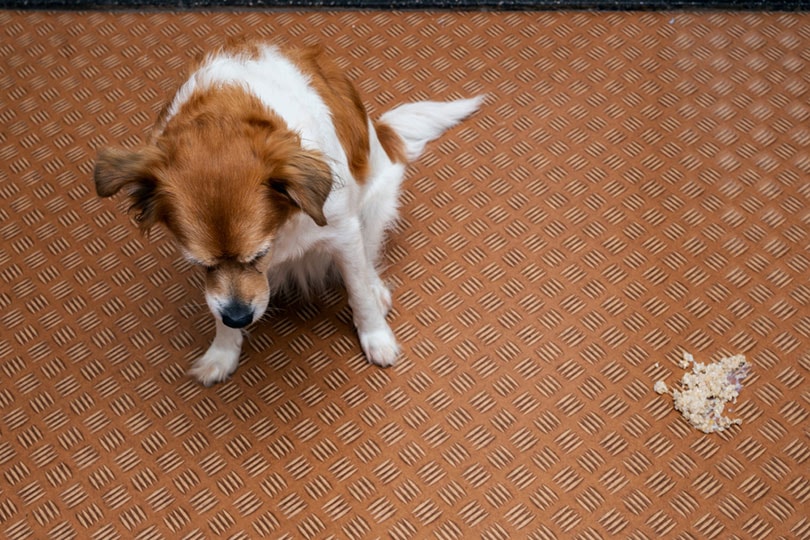
Can you see hookworms in dog feces?
Hookworms are visible to the naked eye in dog feces if you know what you are looking for. They appear as thin white strings mixed in with feces. They can be hard to spot so do not rely on checking your dog’s feces as an indication of an infection being present or not. If you think your dog may have hookworms it is best to get your vet to check them over.

Summing Up
Hookworms are, unfortunately, a common parasite found in dogs’ intestines. If left untreated they can cause serious health issues, but luckily, treatment of hookworm infection is relatively straightforward. It is important to screen for hookworms and other worm eggs in your dog’s feces frequently as your dog may have worms without having any obvious clinical signs. Your vet will be able to advise you on a suitable course of treatment.
Featured Image Credit: Zontica, Shutterstock
